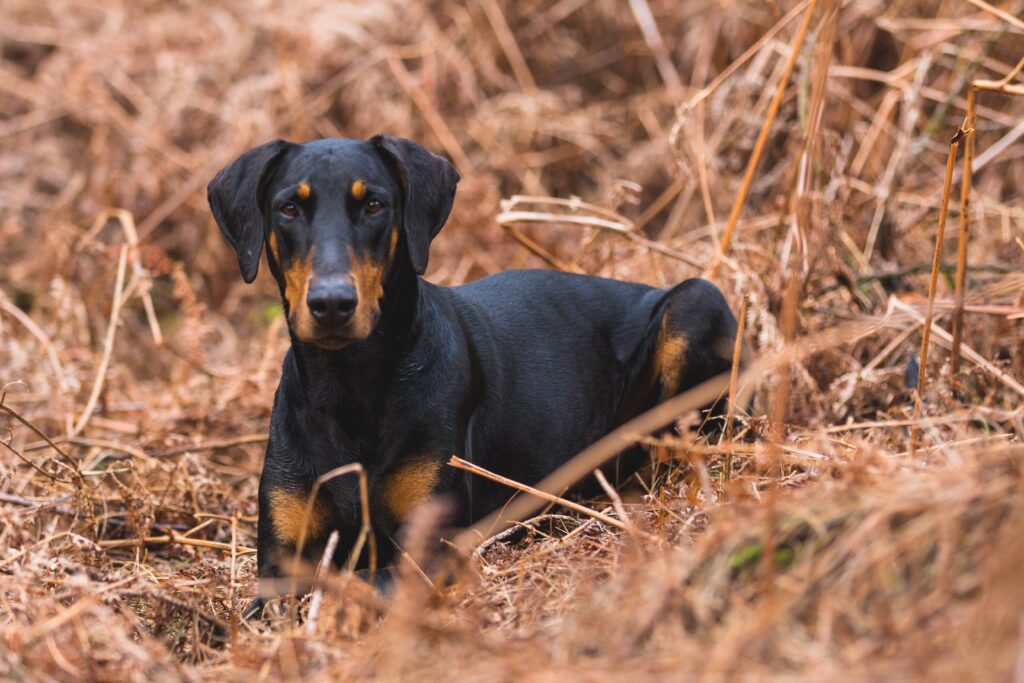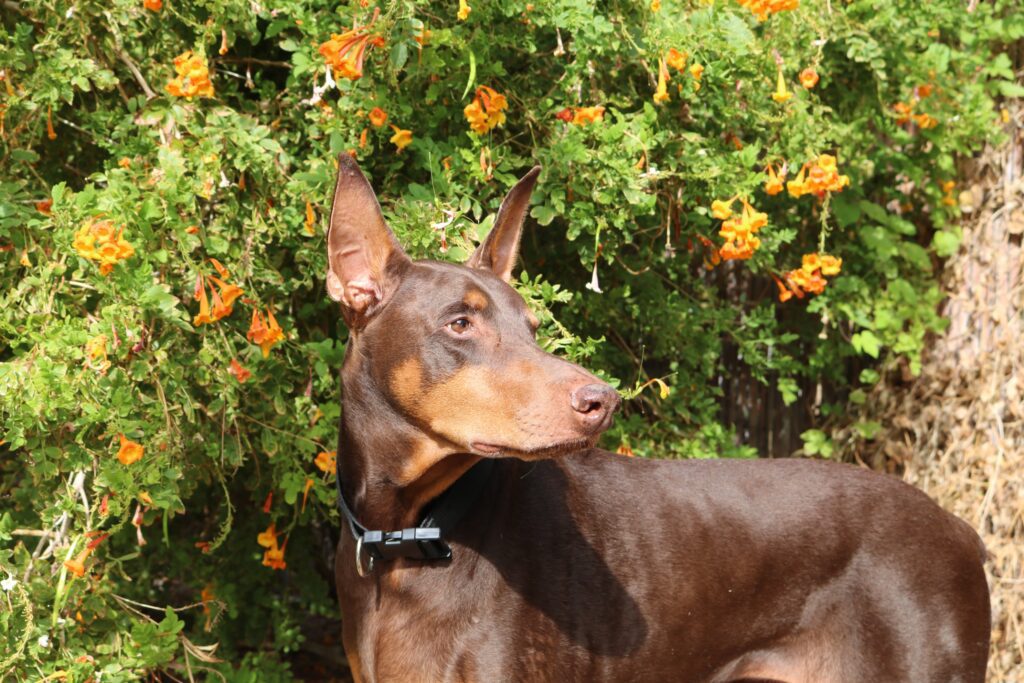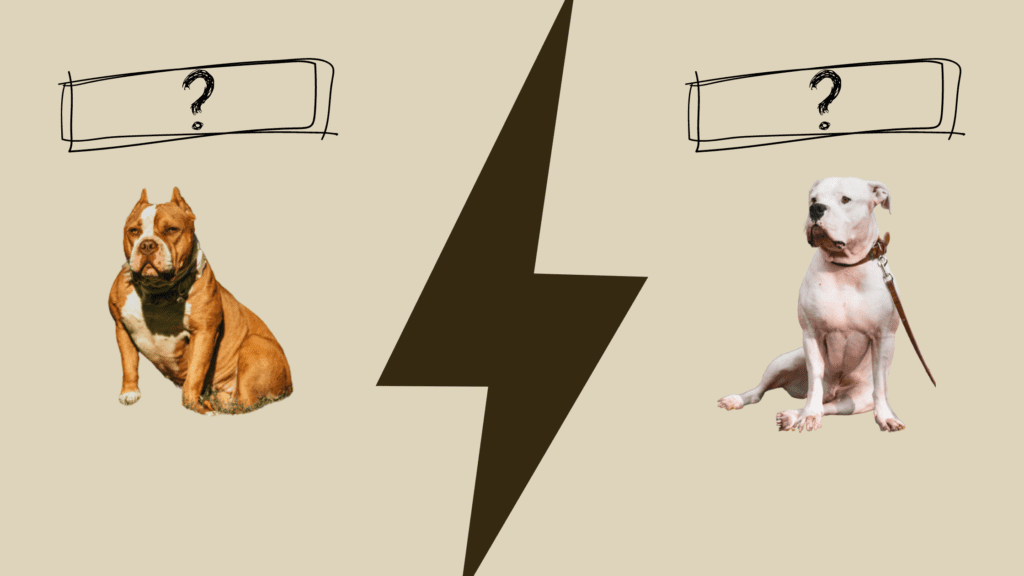Doberman Pinscher Breed Guide: Traits, Care, and History

Welcome to the fascinating world of Doberman Pinscher, a breed that genuinely stands out for combining elegance, intelligence, and strength. These dogs have won the hearts of many dog lovers all around the world.
Doberman Pinschers have a stunning blend of strength and agility, a sleek, muscular body, and an attractive appearance. With their sharp intellect and unwavering attention, their magnificent, wedge-shaped skulls are graced with intelligent eyes. They stand out from the crowd due to their intimidating looks and distinctive coat colors, which include black, red, blue, and fawn.
Beyond their remarkable appearance, Dobermans are devoted to their families out of a deep sense of loyalty. They make ideal guardians due to their extraordinary trainability and inherent protective instincts.
Dive deep into this article to explore more about the exciting qualities of the Doberman Pinscher breed.
History and Origin: Tracing Back the Doberman Pinscher’s Ancestry
Do you know the man who developed this breed?
The Doberman Pinscher originated in Germany in the latter part of the 19th century. Karl Friedrich Louis Dobermann, a tax collector who wanted to build a flexible and dependable working dog, was the person who developed them. His main objective was to breed a dog with intellect and bravery, which would make them ideal guard dogs and loyal pets.
He meticulously chose breeds to build the foundation for this distinctive breed, including the Rottweiler, Weimaraner, German Pinscher, and Greyhound. Through his intelligent breeding procedures, his efforts paid off, creating a breed famous for its exceptional qualities.
Today, the Doberman breeds are great essential resources in various roles, including military and police work, search and rescue efforts, and loving family pets.
Doberman Pinscher Breed Overview
Physical Characteristics and Appearance
The Doberman Pinscher has a lean, well-proportioned body that stands at a medium height. Their sleek physique conveys speed and flexibility, and their strong ribs and deep chest reflect their stamina and endurance.
Temperament and Personality Traits
One of the defining traits of the Doberman Pinscher is its unwavering loyalty.
Despite their intimidating appearance, Dobermans have a natural tendency to be friendly and affectionate with their human companions, which is what makes people love them.
In addition to their affectionate traits, their trainability enables them to excel in a variety of obedience and agility activities because of their innate intelligence.
However, it is important to remember that Dobermans thrive in an environment that exercises both their minds and bodies. Their well-being depends on regular exercise and stimulating activities that help them avoid boredom and potential behavioral problems.
Colors and Markings
Black is among the Dobermans’ most recognizable colors. A sleek, shiny black coat gives off an elegant, sophisticated appearance.


Red is another noticeable color, and it can be anything from dark mahogany to a brighter, vibrant shade. Their muscular build stands out sharply in contrast to this warm tint.


There are numerous distinctive variations in addition to the traditional hues. A striking bluish-gray tint can be seen in the coat of blue Dobermans. The beautiful and uncommon fawn color displays a light brown coat and exudes warmth and charm.
Caring for Your Doberman Pinscher
Proper Nutrition and Diet Guidelines
To ensure proper nutrition, it’s essential to consider the unique dietary requirements of Dobermans. They are muscular, active dogs who require a diet high in high-quality protein. Look for dog food that lists actual meat, such as chicken, beef, or fish, as the first ingredient.
A balanced meal with a modest amount of healthy fats, such as omega-3 fatty acids, which support brain function and maintain a lustrous coat, is also beneficial for Dobermans. It may be advantageous to include sources like flaxseed oil or fish oil.
In terms of their food brands, commercial dog food might be practical, but it’s essential to consider the ingredients and pick reliable products that put quality first. Based on your Doberman Pinscher’s age, activity level, and any special health needs, consulting a veterinarian can help you choose the ideal diet for them.
And most importantly, your Doberman needs constant access to fresh water to stay hydrated, especially after exercise or on warm days.
Exercise and Activity Requirements
To meet the exercise needs of a Doberman, consider activities that cater to their natural instincts.
Dobermans perform very well in activities that demand mental stimulation, like obedience training, agility challenges, or puzzle toys that promote problem-solving.
These activities help keep their minds sharp while providing a sense of fulfillment.
Dobermans also need frequent physical activity in addition to mental workouts. Play fetch, go on brisk walks, or go running in a securely controlled area. It is important to ensure their safety while allowing them to explore their environment.
When organizing their activity schedule, keep in mind your Doberman’s age and health. Puppy playtime may be divided up into shorter periods that get longer as they get older. On the other hand, older Dobermans might require low-impact activities in order to preserve their joints and prevent injuries.
Grooming Tips
Regular grooming maintains your canine’s skin’s overall health while also keeping its coat smooth and shiny. Here are some grooming tips to help you maintain your Doberman’s coat.
Coat
While Dobermans don’t need much grooming, brushing their coats is essential to get rid of loose hair and dirt. Gently brush through their fur using a slicker brush or a pin brush and pay special attention to areas that are prone to matting, such as behind the ears and under the armpits.
Bathing
Your Doberman should be bathed as required, usually every 6 to 8 weeks or whenever they become dirty. Use a shampoo made specifically for dogs that is gentle on their skin and coat. Since any shampoo residue can irritate the skin, always remember to rinse thoroughly.
Ears
To avoid ear infections, regularly inspect and clean your Doberman’s ears. Avoid touching the ear canal by gently wiping the outer ear with cotton balls and a dog ear-cleaning solution.
Nails
For the health of their paws, routinely trim your Doberman’s nails. Long nails can make walking uncomfortable or even difficult. If you’re not comfortable doing it yourself, use dog nail clippers or get support from dog clinics that provide these services.
Teeth
Last but not least, be mindful of your Doberman’s dental care. To avoid dental problems and bad breath, you should frequently wash their teeth with a toothbrush and toothpaste made specifically for dogs.
Effective Techniques for Doberman Pinscher Training and Socialization
Quick fact: Dobermans are known for their exceptional trainability and willingness to learn.
Due to their great intelligence and innate desire to please their owners, these dogs do exceptionally well in a variety of training environments, from basic obedience and agility to more complex jobs like search and rescue, and therapy work.
Here are some proven techniques for stimulating their development and training capabilities.
- Positive Reinforcement
To encourage and reinforce the proper actions, you might use rewards like treats, compliments, and prolonged playtime. This technique creates an atmosphere of mutual learning between the owner and the Doberman Pinscher by strengthening their bond.
- Consistency
Doberman Pinschers do well with regular routines, which is why it is important to be consistent when training them. This helps set clear expectations and reinforce the actions you want them to do.
- Obedience Commands
Train your dog on the fundamentals of behavior with instructions like “sit,” “stay,” “come,” and “heel.” These instructions establish the foundation for clear interaction and control.
Socialization
Aside from proper training, Doberman Pinschers, like all dogs, need early and consistent socialization to learn appropriate behaviors and adjust to new settings. Introduce them to new people, animals, and environments as early as possible.
Dog owners may enroll their Dobermans in classes so that they can benefit from structured socialization experiences under the supervision of an expert trainer. This canine training encourages good manners and prepares dogs to act well when they are exposed to other environments such as parks, busy streets, and public places.
This way, Dobermans can build their confidence, reduce fear or anxiety, and, most importantly, get acquainted with different scenarios.
Doberman Pinschers as Family Pets
Compatibility with Children
Now let’s talk about how Dobermans interact when they are with others aside from the owner.
While Dobermans are often misunderstood due to their reputation as protective and strong-willed dogs, they can be excellent family pets, displaying remarkable compatibility with children and other pets.
Dobermans are trustworthy and cautious with children because of their natural protectiveness and their ability to create close ties with their human companions.
However, supervision is essential to protect the safety of both the dog and the child during interactions. The key to keeping the peace is instructing children on how to approach and engage with the dog in a way that benefits both them and the dog.
Exposing to Other Pets
Dobermans are naturally dominant, so it’s important to introduce them to other pets in your household properly to ensure everyone gets along.
Additionally, it is important to note that same-sex aggression between dogs is a true thing, and it is more often seen in male dogs. So if you own other male dogs, it is really important to be cautious and observant when introducing your Doberman Pinscher to other male dogs.
Health and Common Medical Issues
Although Dobermans are known for their toughness and athleticism, they are susceptible to several types of common health problems.
Here are some of the common medical issues in Doberman Pinschers:
- Cardiovascular Health
Doberman Pinschers are susceptible to a life-threatening cardiac disease called dilated cardiomyopathy (DCM). Heart muscle hypertrophy and weakness, especially in the left ventricle, are symptoms of this condition. As a result, the heart is less able to efficiently pump blood throughout the body.
- Hypothyroidism
Another common health concern in Dobermans is hypothyroidism, a condition characterized by an underactive thyroid gland. Symptoms may include weight gain, lethargy, and skin issues.
- Hip Dysplasia
Like other dog breeds, Dobermans can also be prone to hip dysplasia, a condition where the hip joint does not develop properly. It can lead to pain, lameness, and arthritis.
- Von Willebrand’s Disease
Von Willebrand’s Disease (vWD) is a hereditary blood clotting disorder that can affect Doberman Pinschers, and, alas, there is no cure for it. It results from a lack or dysfunction of von Willebrand factor (vWF), a protein essential for healthy blood clotting. Affected dogs may experience nosebleeds, bleeding gums, or blood in their stool or urine.
- Wobbler Syndrome
Wobbler Syndrome, also known as cervical spondylomyelopathy (CSM), is a condition that can affect Doberman Pinschers and other large dog breeds. It is characterized by compression or instability of the cervical spine (neck region), leading to neurological symptoms. Some symptoms of this syndrome can include weakness, stumbling, difficulty getting up or climbing stairs, neck pain, and changes in limb coordination.
Although some of these medical concerns may be worrisome, regular examinations, vaccinations, and necessary screenings during veterinary check-ups can help catch any potential issues at an early stage.
Moreover, maintaining a healthy dog lifestyle plays a vital role in preventing and effectively managing potential health issues in Doberman Pinschers.
By being proactive in providing regular veterinary care and promoting a healthy lifestyle, you can ensure that your Doberman Pinscher leads a happy and healthy life.
Frequently Asked Questions about Doberman Pinschers
Is a Doberman a good family dog?
With the right amount of training, socialization, and care, a Doberman can become a wonderful family pet. They are well-liked for their commitment to their family, as well as for their intelligence and protectiveness. Yet, they still need positive reinforcement training and early socialization to develop proper manners.
Why is Doberman so special?
There are several reasons why Dobermans are so special. They are exceptionally powerful, quick, smart, and loyal. They can be trained for a variety of purposes, including search and rescue, therapy work, and even athletic competition.
Is Doberman Pinscher good for the house?
Yes, Doberman Pinschers can adapt well to living in a house, provided they receive proper exercise, mental stimulation, and social interaction. They thrive in a loving and structured environment where they feel like valued members of the family. It’s important to note that Dobermans are an active breed, so regular exercise and a secure yard or sufficient space for physical activities are beneficial for their well-being.
Are Dobermans fearless?
Dobermans are known for their courage and fearlessness. They possess a natural instinct to protect their loved ones, which can make them excellent guard dogs. Their alertness, intelligence, and confidence contribute to their fearless nature.
Is a Doberman aggressive or not?
Dobermans, when properly bred, trained, and socialized, are not inherently aggressive. Like any other breed, individual temperament can vary, and aggressive behavior can result from factors such as poor breeding, inadequate socialization, or mistreatment. Responsible ownership is one of the most important aspects of raising a well-behaved and balanced Doberman Pinscher.
Are Dobermans safe around kids?
Dobermans can be trustworthy and kind to children. However, supervision is always recommended to ensure the safety of both the dog and the child. Teaching children how to interact respectfully with dogs and providing appropriate boundaries and rules can help foster a safe environment.
Conclusion
The Doberman Pinscher is a remarkable breed known for its unique combination of strength, intelligence, loyalty, and elegance. These dogs possess a natural instinct to protect their loved ones, making them excellent guard dogs and loyal companions. With their sleek appearance and confident presence, Dobermans have a distinctive allure that sets them apart.
Owning a Doberman Pinscher is a rewarding experience for those who are committed to providing them with the love, care, and guidance they need. With their unique characteristics and unwavering devotion, Dobermans have rightfully earned their place as cherished companions and loyal protectors in the hearts of many.
If you are a proud owner of a Doberman Pinscher and in need of a high-quality collar, we have you covered! Check out our thorough reviews of the best Doberman dog collars you can buy on the market.

